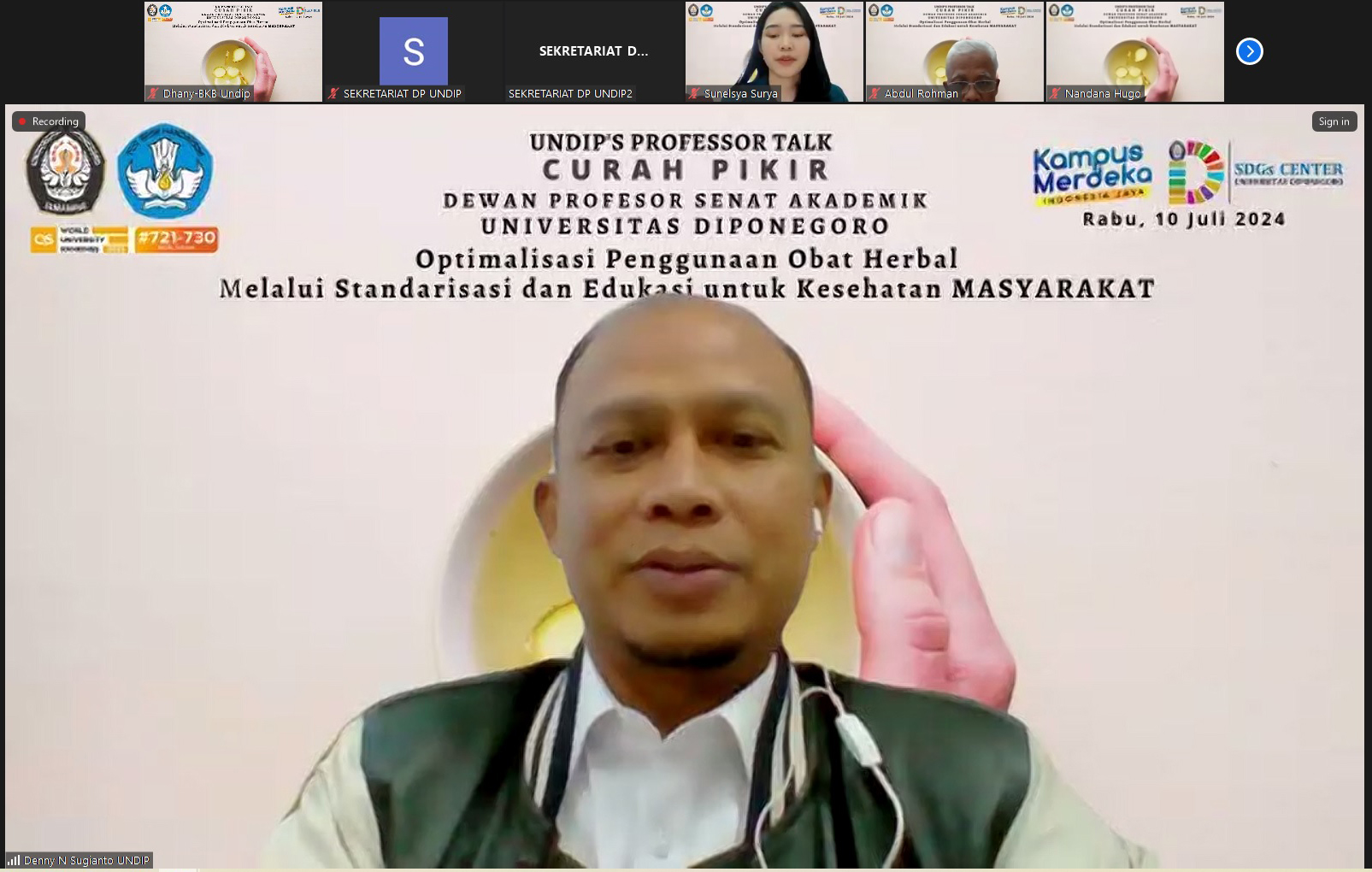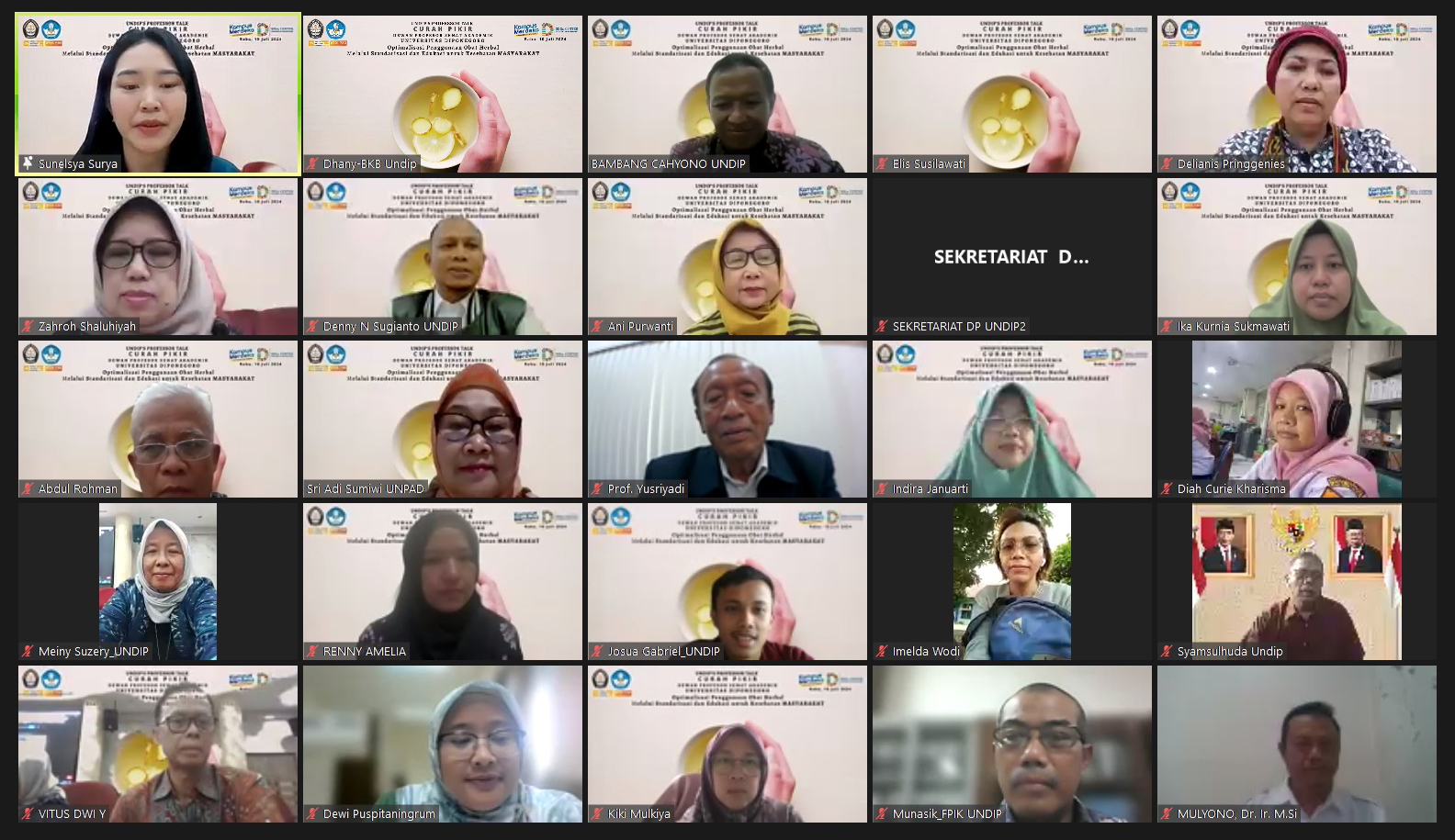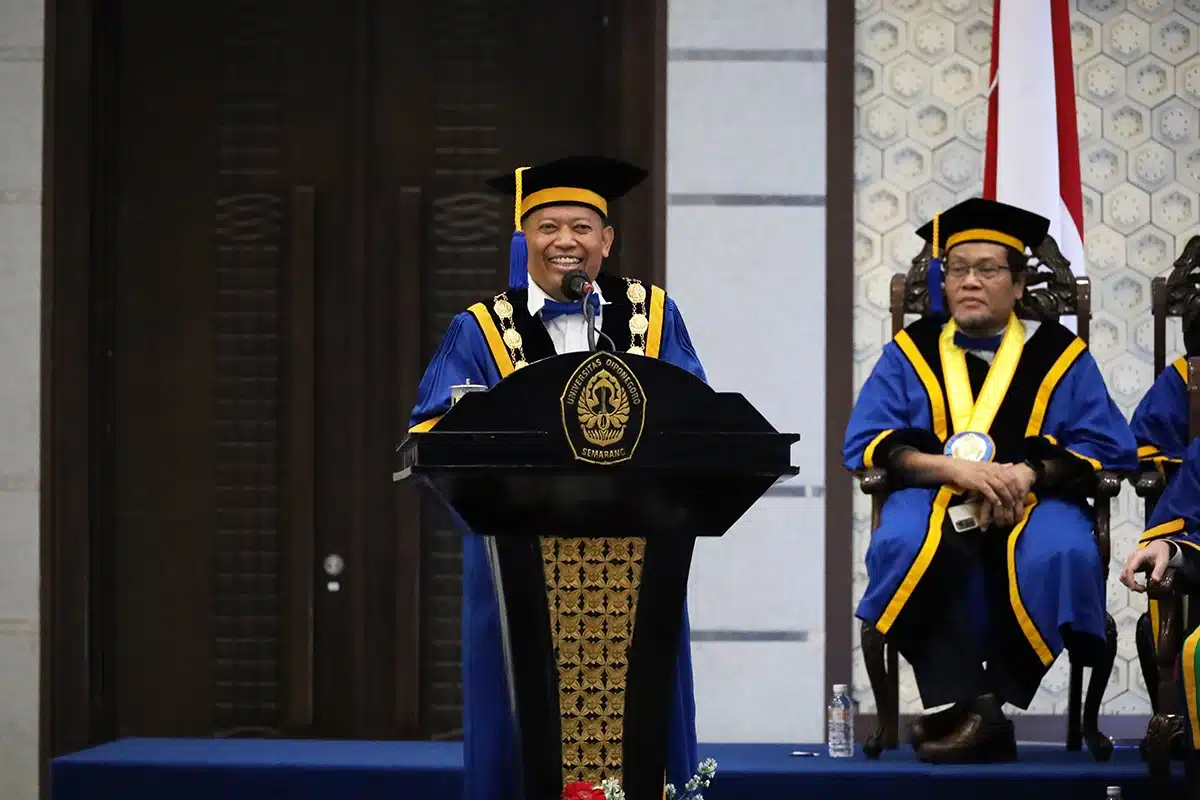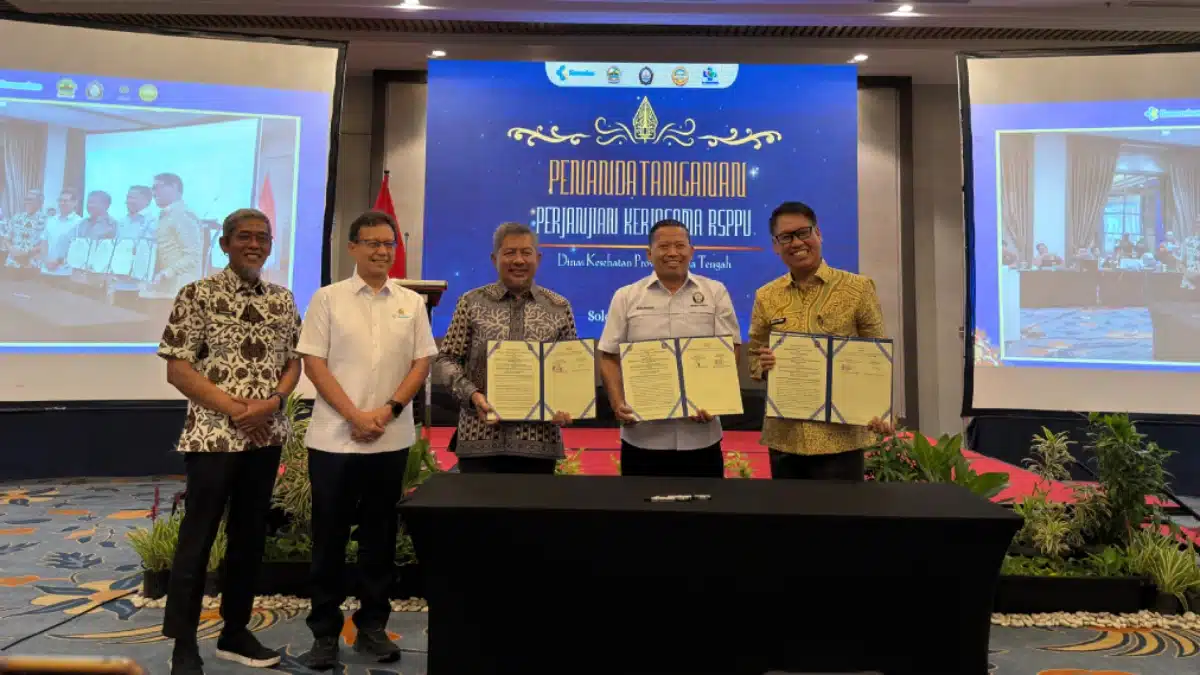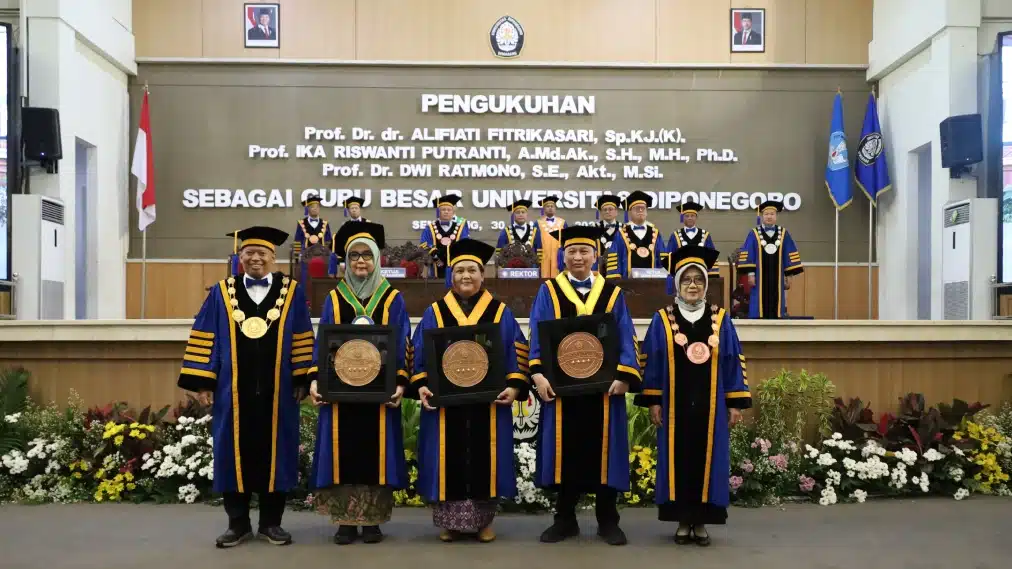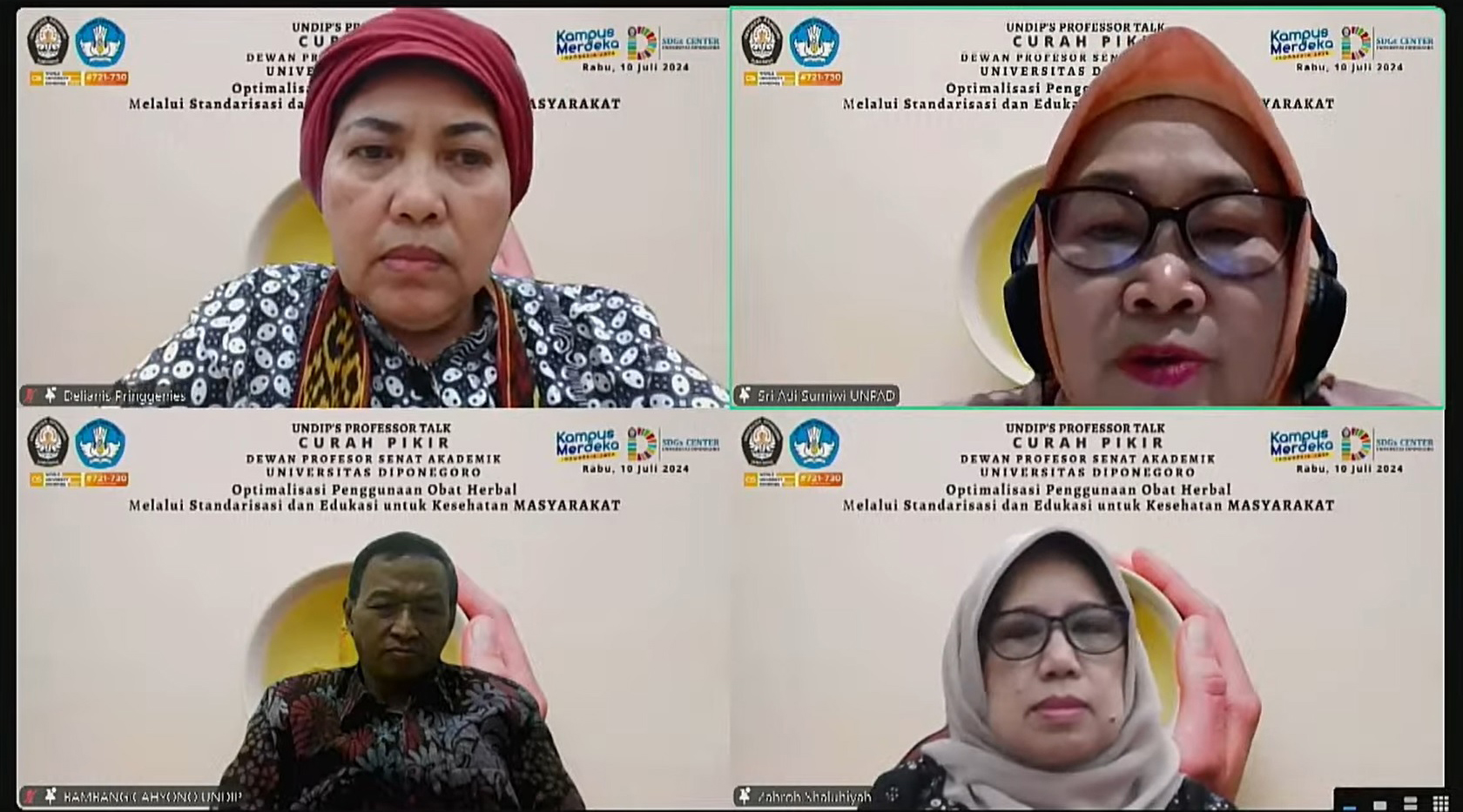The Board of Professors of the Academic Senate of Diponegoro University (UNDIP) held the 17th series of the “UNDIP’s Professor Talk” Webinar on Wednesday, July 10, 2024, at 1:00 PM WIB. The event was conducted online via Zoom and streamed live on the official UndipTV YouTube channel, with the theme “Optimizing the Use of Herbal Medicines through Standardization and Education for Public Health.”
Representing the Chairman of the UNDIP Board of Professors, the event was officially opened by the Secretary of the UNDIP Board of Professors, Prof. Dr. Denny Nugroho Sugianto, S.T., M.Si. In his opening remarks, Prof. Denny stated that the growing use of herbal medicines presents both opportunities and challenges. Additionally, the current demand for herbal medicines is driven by the public’s need for a healthy lifestyle.
“Today, the UNDIP Board of Professors, professors, and speakers are providing insights and knowledge on how herbal medicines can be utilized as an alternative treatment for the public. Some herbal medicines are not yet standardized, while others have been standardized by the Food and Drug Monitoring Agency (BPOM),” said Prof. Denny.
According to Prof. Denny, the topic of this webinar aligns with one of UNDIP’s agendas, which is UNDIP with Dignity and UNDIP for Benefit. “According to the Rector’s command, UNDIP currently has an agenda, which means being beneficial to society in terms of both thoughts and products produced by scientists and academics at UNDIP,” he explained.
The webinar, moderated by Prof. Dr. Ir. Delianis Pringgenies, M.Sc., featured three speakers: Prof. Dr. Apt. Sri Adi Sumiwi from the Faculty of Pharmacy, Universitas Padjadjaran, who discussed “The Use of Herbal Medicines in the Field of Pharmacy”; Prof. Dr. Bambang Cahyono, M.S. from the Faculty of Science and Mathematics, Diponegoro University, who explained the “Standardization of Herbal Medicinal Ingredients as the Key to Safety and Efficacy”; and Prof. drg. Zahroh Shaluhiyah, MPH., Ph.D. from the Faculty of Public Health, Diponegoro University, who presented on the “Education of Herbal Medicines for Improving Public Health”.
The webinar aims to educate the public about the use of herbal medicines, which have long been used as alternative treatments. However, the use of herbal non-standardized drugs often leads to various health issues, such as the risk of overdose, interactions with other medications, and adverse side effects. Therefore, strict standardization of herbal medicines is necessary to ensure their quality and safety.
Furthermore, education is also a crucial factor in optimizing the use of herbal medicines. With a good understanding of the correct use of herbal medicines and adherence to the given standards, the public can derive maximum benefits from safer and more effective herbal treatments.
